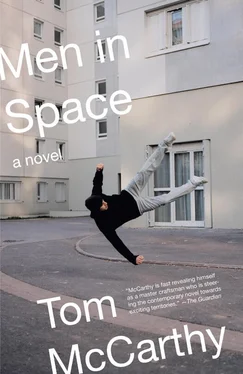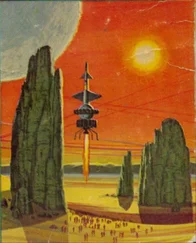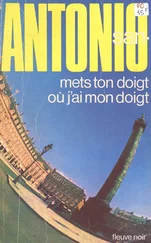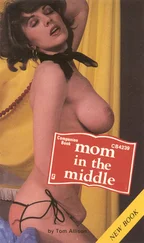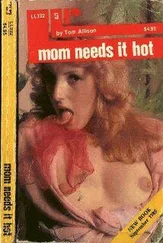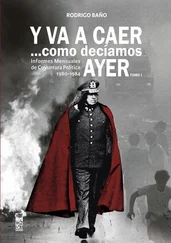He’s still crouched just above his chair, half in, half out. The dark-haired man watches him slide in, breathes out slowly, and then, measuring each word for his own benefit, continues:
“Right. It’s very simple. You are going to tell me now, this second, where the original painting is.”
Is that all this is about? “It’s the one with the red mark on the side.”
“No!” The dark-haired man’s hands are moving up and down in sheer frustration. “No …”
He tries again: “The left side, near the …”
“No! No! No!” this last one’s thumped out on the table. “Don’t — fuck — around — with — me! One more time, the last time, and I hope, I hope for your sake that you come clean here, because it’s out of my hands if you don’t, and you won’t be seeing anybody ” — with the anybody spit flies from his mouth and hits Anton on the cheek — “wife, children, anybody you know in a big long fucking time. Where — is — the — real — painting?”
What’s happening? What’s happening? The question and the anger are completely genuine. So’s the terror: the dark-haired man’s almost as frightened as he is. The whole procedure’s moved into a zone neither of them understands. A new, pitch-black labyrinth’s sprung up around them and this time there’s no chink and no one to lead them to the door; they’re both running around blind, bumping against hard, dirty walls, against closed doors, each other. How can both paintings be …
“If one of those two that were at my flat isn’t it, then I swear, I swear I don’t know! I swear on my life! I don’t know!”
He’s crying now. The dark-haired man squeals in anguish. He pushes the table forwards at him, shoves it so it slams against his thighs, then shoves it again. When it won’t move the second time he runs round it and pushes Anton to the floor. Anton shuffles back towards the wall, animal fear making his muscles move, his right leg pulled over his left, head up as the dark-haired man jerks his own right leg, holds it, jerks it again, waiting for the right moment to strike, like a good centre forward waiting for the bounce to settle, the goalkeeper to go down; then the leg comes back and …
“He doesn’t know.”
Both men stop moving and look over towards the lieutenant. He’s stubbing his cigarette out in the ashtray, rising casually from his chair, laying the clipboard and pen down on its warm, dented seat. He scratches his hip, shakes his shoulders and repeats:
“He doesn’t know.” Then, with an inclination of his head towards the door: “Let’s go.”
They’re gone before he’s even got up. They don’t take anything with them: they just walk out. They don’t even close the door or call the uniforms in. Anton rises slowly, wipes his hand across his face. He’s shaking. He walks round the table and puts his hand on the back of the lieutenant’s chair to steady himself. He breathes in, then out, lips held tight in an O . Beneath him, on the chair’s seat, the lieutenant’s notes are lying abandoned. He looks down at them. The whole page is covered in lines: straight, unbroken lines, curved lines and jagged lines, lines that turret up and down as they march across the paper’s upper border, spiral inwards towards minute disappearing points or zigzag their way along the margin. That’s all there is on the page. No words, no figures: just lines. He flips the page over and looks at the one beneath: it’s the same, and so’s the one beneath that. A uniform comes through the door.
“You’re free to go.”
Anton looks at him. “Where? Go where?”
“To go. You may leave. You are no longer under arrest.”
Branka is waiting for him in the lobby. He takes Anton by the arm and leads him to the door.
“Where’s Helena?”
“At home. She’s fine.” It’s light outside, but only just. Either dawn or dusk. Branka leads him to Ilievski’s Mercedes which is waiting in the street, opens the rear door and slides him in. Ili’s at the wheel; he pulls off as soon as Branka gets into the front passenger seat. He drives up Bartolomějská in silence, then cuts through Náměstí Republiky and onto Švermův Most. He doesn’t speak until they’re stopped at the lights on Nábřeží Edvarda Beneše. His eyes meet Anton’s in the rear-view mirror:
“Your Maňásek has turned us over.”
Anton has nothing to reply; he’s too exhausted even to try. He just looks back at Ilievski’s eyes. The light goes green, a tram rings its bell; they start off again and enter the Letenský Tunnel.
“Oh yes. He’s turned us right over, is what he’s done.”
* * * * *
In Kampa Park a statue has fallen from its plinth and broken. This seems significant. Everything seems significant: shock does that to you. That in the month of Janus, god of open doors, he should come home to find his door padlocked … That, after being dragged from bed three weeks ago to watch Maňásek sending seagulls shooting up into the sky by Palackého Most, he’s just had one fall, dead, onto the pavement right in front of him … That he found out this morning that Gábina was taught Russian in primary school by Maňásek’s mother … These events take on the aspect of things more than coincidental, tokens shuffled around by some invisible hand working the larger choreography of chance and circumstance. And there are ravens in the park, perched in branches overhanging the Vltava, cawing disgruntledly — perhaps because as death omens they’ve been pre-empted: the neighbour told him yesterday …
On the phone last night Maňásek’s mother said to Gábina, who Nick’s been staying with since Tuesday (Karolina’s out of town, and anyway seems to have cooled on him since learning of his imminent departure), that he should come by at four. The clock at Náměstí Míru was showing half-past three when he slid by it on the twenty-two. Her place is off the park, before Karlův Most. He doesn’t want to turn up early. Maybe in Amsterdam he’ll have to get a watch. Will there be meetings? Will he have to wear a suit from time to time? How can he think about these things with Maňásek not four days dead? His body will be in that very room where he and Angelika … This town is too small. Splat! There are three girls sitting on a bench, breath pushing out of them into the frosty air like — oh no, it is cigarette smoke. One of them must have a watch; he’ll ask them. They look like the Three Fates, wrapped in long black shawls and scarves. At least they’re not weaving …
The girls don’t understand him; they tell him so in French. He asks them in French for the time. It’s seven minutes to. Nick sparks a Marlboro up as he walks on, drawing the smoke into his lungs. Must phone Jean-Luc and ask him if he’s found Heidi’s glasses. If they take Maňásek’s insides, strip him like an old car, they’ll have enough diseased tissue for a whole semester. And Angelika snipping and cutting at it, too, eyes lit up with revenge: Bite my leg, motherfucker? He’s smiling. You’re sick, Nick , he says to himself — then says it out aloud, to ravens, broken statue, Fates:
“Sick Nick.”
It’s like a little maze just off the park. There’s even a canal here. Gábina knew exactly where the street is: right behind the John Lennon wall. She joined the vigils there each day during the revolution. Nick’s seen the photos: wide-eyed Gábina with candle in hand, peace bandanna round her head, a teenage hippy. The wall’s got a huge portrait of the great Beatle painted on it; below this, a hundred little messages scrawled out and folded, stuffed in bottles or wedged under stones. As Nick moves past these towards Maňásek’s mother’s, the tune those buskers were playing at Jean-Luc’s party runs through his head again, its lyrics vague: something about bad flights, disconnected telephones and unpacked cases, a broken-down country …
Читать дальше
